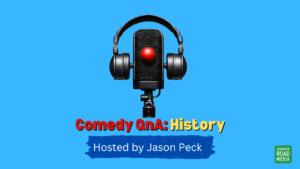Back at the end of May I did a how to improve presentation skills workshop for the University of Chicago. I enjoyed it for the most part, but there were a couple of things I hadn’t anticipated. I liaised with my contact and got clarification about the time available and I explained how long my workshop was. But for some reason there was still a mis-communication between us…
As feel speaking coach Lisa Braithwaite said in a May blog post you never have as much time as you want, she was absolutely right. When I arrived, I had to drop sections of my workshop to try and keep to time.
Think about this in terms of your own speech or presentation. Obviously you need to time yourself giving the presentation beforehand, but there might also be times where you have to think on your feet and change things; either at the last minute or during your presentation. Remember, you need to be flexible!
What also happened was that some of the students got up and left, it wasn’t just because the workshop was over-running, as I initially thought, as some left right at the beginning. It took me a little by surprise, and I drew attention to it the first time it happened and got some laughter, as I thought it was me. But it happened a few more times. In a situation like that you start to think that it’s you.
The problem, I think, is that University students are used to skipping out of lectures early. Not only that, it’s a little difficult if your audience doesn’t have a compelling reason to remain. If they’re interested in learning presentation skills they’ll remain, but beyond that, from my perspective, they didn’t get any credit for their courses. That means, the students didn’t have to remain if they did not want to.
The other thing was that it was a week before their final exams, which means that they’re even less inclined to stick around. If they can see the light at the end of the tunnel, and the presentation skills workshop isn’t getting them credit, why stay?
One of the most frustrating things was how some of the students reacted as though they knew everything. While some of the questions in the Q&A section were perfectly fine, some of the questions and statements seemed to have quite a bit of attitude behind them. This was was quite surprising to me as I thought that students were like sponges and wanted to learn some techniques that they could take into the corporate environment.
While some people heckle, others don’t. They might ask you pointed questions and say things that have a slight confrontational attitude to them. The best thing to do in this situation is not to let their attitude affect you, it’s easier said than done because negativity can be easy to pick up on it, but it’s far more productive to come from an empowered place and remember that you’re a leader.
Note: I found that using some off-the-cuff humor, as well as some pre-planned humour, allowed me to connect and build rapport with my audience. As a side note if you’re interested in using humour in your presentations, you may have asked yourself how to do so check out this link for how to create a funny presentation.
As I said earlier, it wasn’t all bad as some the students did actually enjoy themselves. I also had fun, especially when I was able to use some humour and get a few laughs. Here’s a testimonial from one of them:
“Entertaining, yet extremely informative. (Jason) Breaks down all subtle issues that need to be avoided in presentations”
~ Khurram Lakani, M.B.A student, The University of Chicago




2 comments
Jason:
One tool that useful for situations like this is Mind Mapping. It’s a great tool for developing, practicing and delivering a presentation.
If you have to cut parts of the presentation, looking at your mind map, where the entire speech is displayed visually, is easier to do.
As far as questions, it’s often best to take them before closing the presentation rather than after it. This lets you control the situation and end on a high note.
The people who get confrontational – tell them to email you for a response.
Thanks for the Post!
Author
Hi Fred
Thanks for your comment. You’re absolutely right, I should’ve used a Mind Map it probably would’ve made my life a lot easier. I’ve used them before as can be seen with an old post of mine:
http://prohumorist.com/public-speaking-and-mind-mapping/
my aim was to take the questions just before my ending and THEN go into my close. But once you open the flood gates…
Interesting that you suggest to get the confrontational people to email for a response. That might work I’ll have to try it.
It might also be amusing to do the same thing in a stand-up comedy club environment and ask the hecklers to email you for a witty retort later.
Cheers